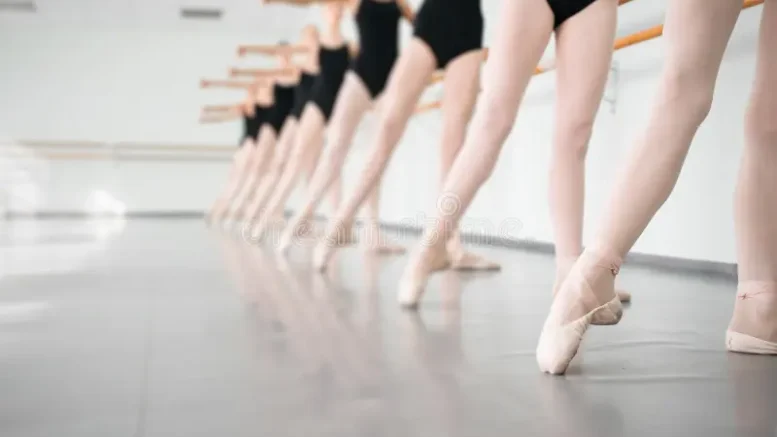By Holly Hearn
“Look in the mirror!” was something I heard almost every day for 14 years.
I was doing what I enjoy most in this world, dancing with people who had become my family under the instruction of teachers who were some of my biggest role models. I grew up spending an hour at my dance studio, then five, then 13 or more every week as I got older.
There was nothing quite like it, and it became my first love and something I never wanted to give up and have continued into college.
All those countless hours were spent in front of a mirror receiving critiques all afternoon. Sometimes it was all eyes on me as my solo was torn to shreds just to look better in the end, sometimes it was all of us together, yet still somehow feeling against each other.
Growing up, “Look in the mirror!” was something so natural to hear from a teacher. They always said it with your best interest in mind.
When dancing alone, you would see every last arm at the wrong angle, every turn fallen out of and everything else that could possibly go wrong. In a group, you saw everyone else, and they seemed to be moving perfectly and better than you, and it would feel like you could never get it quite right.
As a dancer, everything leads back to how well your body performs. You stare at yourself in a mirror for countless hours a week, everyone watching your every move, making sure you are holding yourself exactly perfectly to become a better version of yourself.
It does not help that in the history of dance, much of it had to do with the dancer’s body type rather than their abilities, something that has been thankfully strayed from in modern times but will always be in the back of everyone’s heads.
No matter how much love you have for it, the pressures of trying to be better will begin to take a toll on you eventually.
It’s not just dancers. We all live in a world of high expectations. Everyone from parents to teachers to coaches seems to want their kid to be the best at what they do. Whether it’s stress from an activity or job or something financial, academic, or otherwise, mental health struggles are becoming more common in the high school to college age range.
In fact, according to the American College Health Association, over 76% of all college students are experiencing some form of psychological distress. These psychological distresses commonly include depression and anxiety, and according to the Mayo Clinic, a major cause of this is comparison between peers in an academic, athletic, or social setting.
Comparison between peers is something almost inevitable as a dancer, no matter what level you are at. Growing up it’s who gets to be in the front and center, as you get older it’s who is winning at competitions and after high school, it is who isn’t getting cut at auditions.
When those around you are getting things that you aren’t, you begin to analyze everything that could possibly be wrong with you that would stop you from coming out on top. This can lead to numerous mental health issues, such as depression, anxiety and even eating disorders. It can lead to struggling to see the positive aspects of yourself.
That’s something I’ve experienced time and time again within my group.
Pressures from those around us can happen to anyone at any time. The expectations set by dance teachers, parents, employers, coaches and anyone with power over others can be debilitating. It is easy to feel stuck under the standards that they expect you to be reaching every day.
But does doing something we love need to have just as much of a negative impact on us as it does a positive? For people feeling like they are constantly being compared to those around them, it can be difficult to feel like there is a light at the end of the tunnel.
In these situations, I’ve learned something important: It’s crucial to distance myself from what I’m doing, make time for myself and remind myself of why I love it in the first place.
It can also be beneficial to seek help from those around you for extra support. But ultimately, it is about trying not to just look in the mirror and compare yourself but reminding yourself of what good comes from the thing you love.



Be the first to comment on "Under pressure: Battling expectations as a teenager"